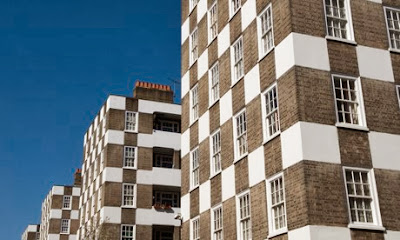Barnet Council are planning
to make severe cuts to our library service
They are currently consulting on
three possible options:
Option 1 Massive reduction of size of library
to 540 sq feet – approximately the size of a large sitting
room. Possible relocation from the existing building to another site
and our library building sold off.
Library hours extended but
only staffed for 33% of the time.
Option 2 Our library would be closed
Option 3 Massive reduction of size of library
to 540 sq feet – approximately the size of a large sitting
room. Our library would be offered to our community to be run
entirely by volunteers. Possible relocation to another site in Mill Hill and our
library building sold off.
It’s the oldest trick in
the book to give only poor options in the hope that the least bad is taken and that
the discussion is immediately limited. If, like us, you feel that all three options
are unacceptable and lack vision, please join us in protesting and coming up with more constructive, imaginative ideas.
Regarding the consultation document, paper copies are available in
the library. You can also complete it online at
Here are our suggestions for the questions to watch out
for:
Q6 We suggest you Don’t Answer!!
It asks you to rank which
days of the week you want the library to be staffed. We advise that you don’t
answer because the results could be used to justify reducing opening hours on
particular days of the week.
Q7 We suggest you Don’t Answer!!
This question asks you to
choose a time of day when you want libraries to be staffed. We believe that
libraries should be accessible to all groups and open as long as possible.
Different people use the library at different times – e.g. parents of school children
may prefer mid-afternoon opening, students may prefer evenings and working
people weekends.
Unstaffed opening times will restrict the time children
can use the library. It will also deter elderly and vulnerable people and
people with disabilities from using the library. We advise that you don’t
answer this question because the result could be used to justify reduced staffing
and more unstaffed hours.
Q8 Tick ‘I would not feel confident at
all’ and put your reasons in the comments box at Q10 Asks how you feel about an
unstaffed library. We believe that libraries should be safe places for
everyone. Barnet has not explained how an unstaffed building would be either
safe or secure.
Q9 We suggest you say ‘I would not feel
confident at all’ An unstaffed library would
offer neither the same level of service nor be as safe as a staffed building.
Q23 Tick ‘Another option’ and explain in
the Q24 comments box why you oppose all three
options This is the key question
which forces you to rank in order the council’s three options, which for Mill
Hill are:
- Option 1: Massive reduction
of floor space to the approximate equivalent of the current computer room,
possible relocation from the existing building, library hours extended but
only staffed for 33% of the time.
- Option 2: Our library would
be closed
- Option 3: Our library would
be offered to our community to be run entirely by volunteers, but with a
reduction of floor space to the approximate equivalent of a large
sitting room, and possible relocation from the existing building.
We believe that all three
options are bad ones, lacking imagination and vision, and we
oppose them all.
Q25 Say No!
This asks if you would be
interested in volunteering. While volunteers can be a good thing if they’re
trained and supported, they should not take the place of paid professional staff.
Because there’s no comments box to express this distinction we recommend
saying ‘no’ to this question.
Q26 Say No!
This asks if you would be
interested in running a community library. Expressing a willingness to
do so gives Barnet an argument that a community can be denied a key
service, available free of charge in other parts of the borough (paid for by your
council tax), and asks us to run it ourselves, thus putting librarians out of a job. Running a community library is no
easy thing.
We will be running a public meeting at Hartley Hall, Flower Lane on
Wednesday 14 January at 7pm. Please come along to support your
library and to bring your own ideas on the future of our library.
Richard Logue is the Chair of the Mill Hill Residents Association





























